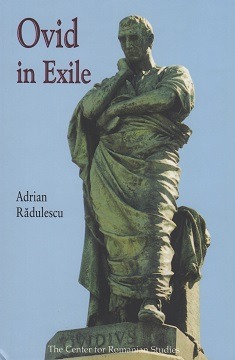Description
by Adrian Radulescu
This book discusses the life and works of the Roman poet Publius Ovidius Naso. It looks at the motives behind the exile of the great writer by Emperor Augustus to the port city of Tomis on the Black Sea (modern-day Constanta) and the impact of his exile on Ovid’s literary work.
Born in Sulmo (Sulmona) in central Italy in 43 B.C., Ovid was a prominent Roman aristocrat who practiced law and became known for his poetry, especially his erotic poetry. The motives for his exile have been a controversial aspect of his biography. Adrian Radulescu analyzes the available evidence, concluding that the reasons for Ovid’s exile were much more complicated than the charges of “corrupting the youth of Rome” for writing his famous set of poems “Ars Amandi,” reaching into the imperial household itself.
The author studies the historical environment in Tomis and the surrounding area into which the Roman poet was exiled, discussing the impact of his exile on his life and work. Ovid spent the last 8 years of his life, from 9-17 A.D. in Tomis where he was buried with honors at the city gate. It was also during his exile that he wrote two of his most important literary works, Tristia and Ex Ponto.
The author, Adrian Radulescu, was the former director of the Museum of History and Archeology in Constanta and one of Romania’s foremost experts on the ancient history of Dobrogea.






Reviews
There are no reviews yet.